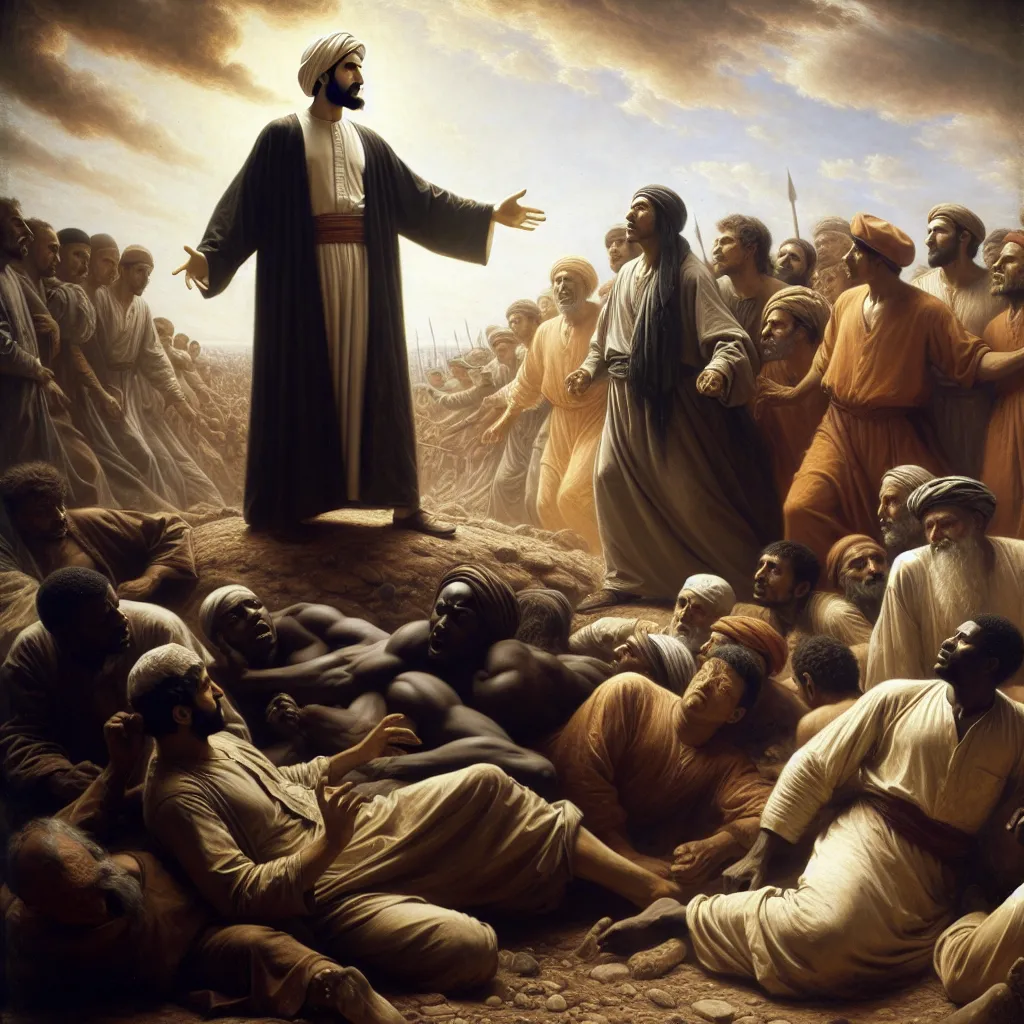
- Published on
- Authors

- Name
- You
The Ethics of War and Peace in Islam: Muhammads Guidance on Conflict Resolution
Introduction
In the shimmering interplay between ethics, science, and spirituality, the teachings of Prophet Muhammad (peace be upon him) resonate like a harmonized symphony, touching upon the deepest arcs of human conflict and the divine quest for peace. Islam, a faith deeply rooted in compassion, provides profound insights into the ethics of war and the imperative of peace.
Divine Guidance: The Core Principles
The Sanctity of Life
Prophet Muhammad emphasized the sanctity of life, resonating deeply with the quantum understanding of the unique and irreplaceable nature of every living being.
"Whoever kills a soul unless for a soul or for corruption in the land - it is as if he had slain mankind entirely. And whoever saves one - it is as if he had saved mankind entirely." - Quran 5:32
Just War Ethic and Rules of Engagement
The teachings underscore that war is only permissible in defense, and even then, it must be conducted ethically. Here, Islamic Precepts align with the Just War Theory, celebrated in numerous philosophical traditions, establishing rigorous rules of engagement.
Table: Rules of Engagement
| Principle | Description |
|---|---|
| Intention | War must be fought with the right intention, solely for self-defense and not for conquest or revenge. |
| Proportionality | The response must be proportionate to the aggression suffered. Excessive violence is strictly forbidden. |
| Non-Combatant Safety | Civilians, women, children, the elderly, and religious clergy must not be harmed. Protection of non-combatants is paramount. |
| Fair Treatment of Prisoners | Prisoners of war must be treated humanely, reflecting deep-seated humane instincts correlated with the concepts of entanglement and interconnection. |
The Pursuit of Peace
Prophet Muhammad prioritized peaceful resolution over conflict, aligning with our inherent quantum state of coherence and harmony. His life exemplifies numerous peacemaking efforts, such as the Treaty of Hudaybiyyah, a masterclass in diplomacy and conflict resolution.
"And if they incline to peace, then incline to it [also] and rely upon Allah. Indeed, it is He who is the Hearing, the Knowing." - Quran 8:61
Embracing Peacemaking
The teachings encourage an active pursuit of peace, fostering dialogue and understanding whenever confrontation looms. This approach resonates with the scientific principle that cooperative states tend to achieve greater stability and prosperity.
Table: Steps in Conflict Resolution
| Step | Action |
|---|---|
| Understanding | Grasp the root causes and perspectives of the conflict parties. |
| Dialogue | Engage in open and honest communication without preconceived judgments. |
| Negotiation | Engage in mutually beneficial negotiations to find common ground. |
| Compromise | Compromise where necessary, fostering a win-win scenario. |
| Resolution and Reconciliation | Follow through with agreed-upon solutions and work on healing and rebuilding. |
Conclusion
In an era where the shadow of conflict looms large, the ethical guidance of Prophet Muhammad provides a beacon of hope and path to peace. It blends seamlessly with scientific wisdom, reminding us of our quantum interconnectedness and the universal principle of compassion. By adhering to these timeless teachings, humanity can navigate the turbulent seas of discord towards the serene harbors of peace.
So, let us embrace the ethereal dance of ethics, science, and spirituality, and walk hand in hand toward a future resonating with harmony and light.
